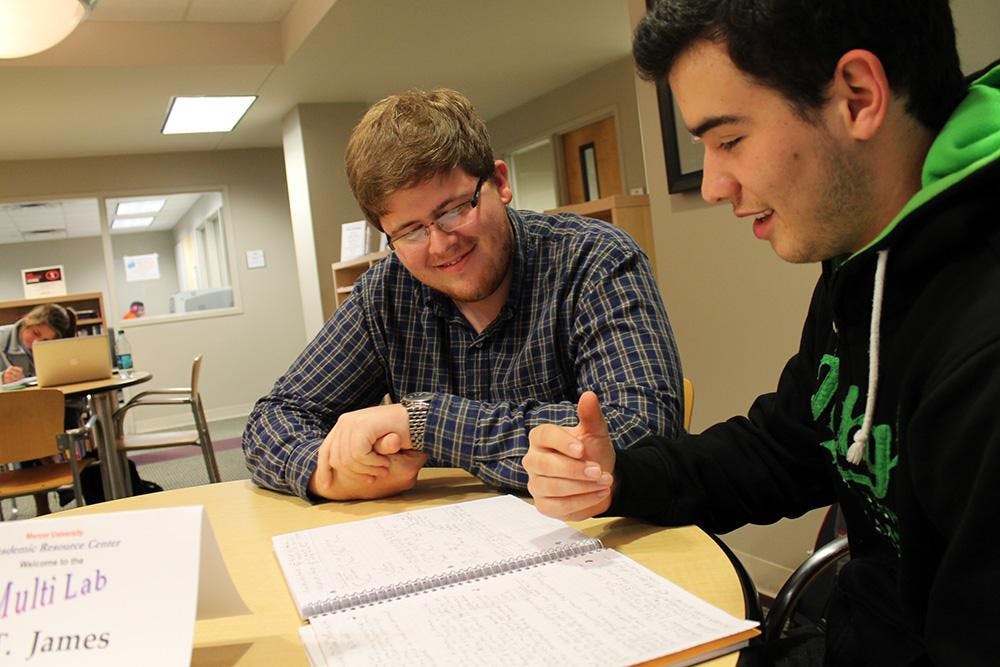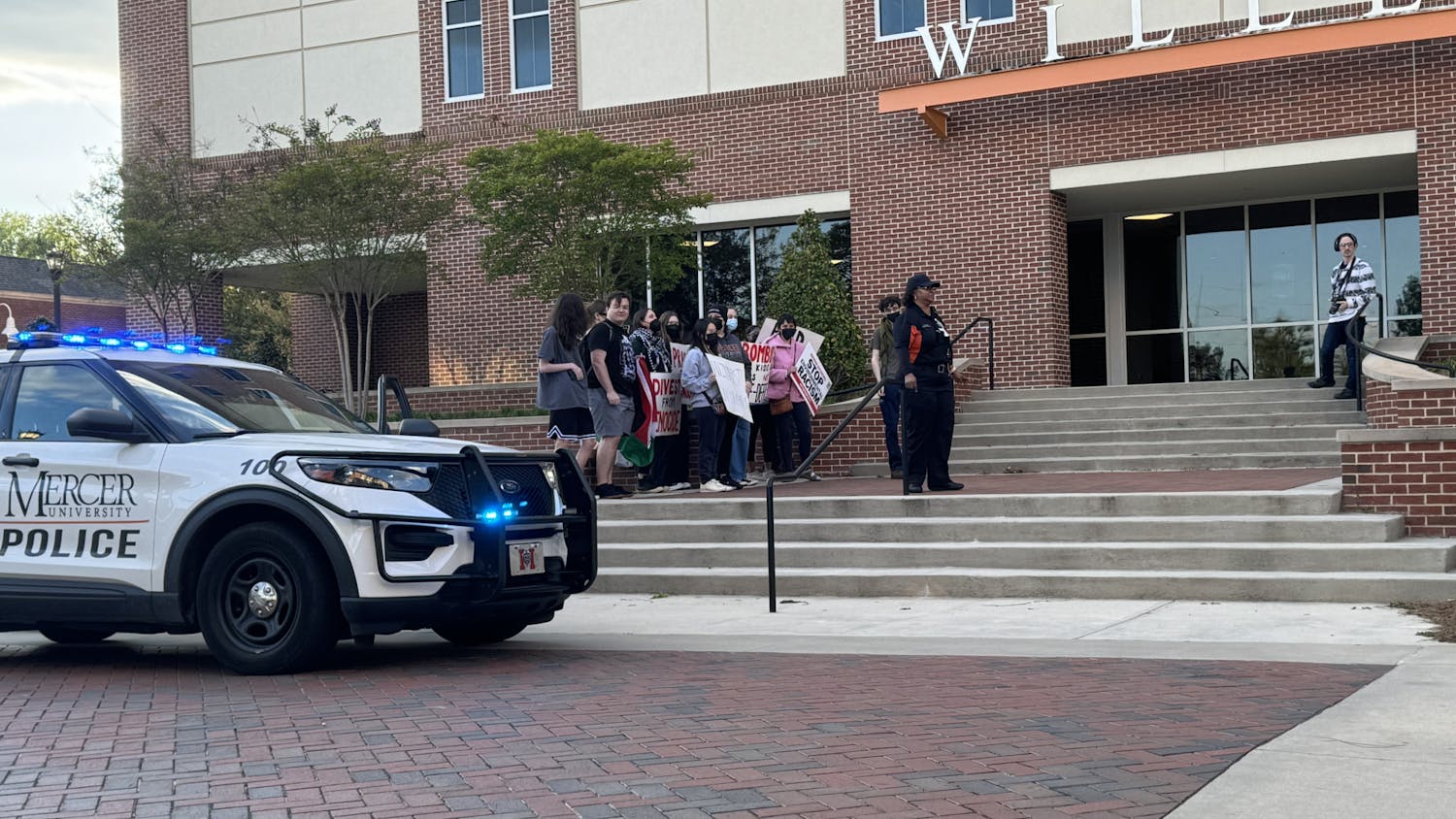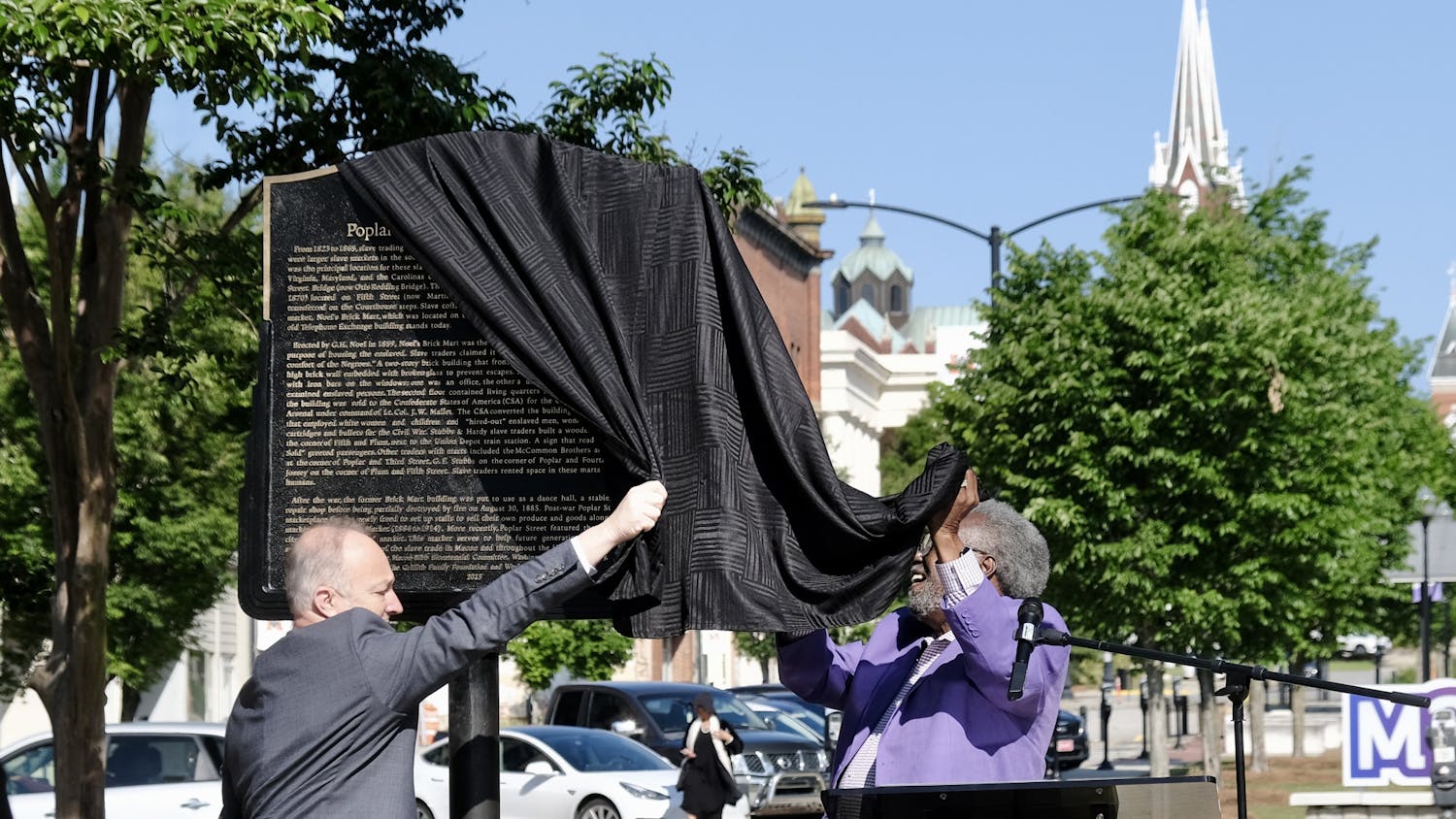![IMG_0351[1]](http://mercercluster.wpengine.com/wp-content/uploads/2014/01/IMG_03511-300x200.jpg)
![IMG_0355[1]](http://mercercluster.wpengine.com/wp-content/uploads/2014/01/IMG_03551-300x200.jpg)

The Academic Resource Center has made a new addition to the regular tutoring schedule at Mercer University. Assistant Director of the ARC, Stephanie Mooring, recently launched the Study Skills Peer Coach Program.
The new program allows students to have a one-on-one “coaching” session on study skills with a “coach” who is a fellow Mercer student. J.T. James, a junior majoring in computational science with a minor in economics, is the ARC’s first study skills peer coach. James has worked at the ARC as a lab assistant since fall of last year, and he has been an ARC Ambassador since 2013. ARC Ambassadors go out and give presentations on study skills to multiple classes throughout the school year. He also works in the admissions office as a student admissions team member. In his spare time, James frequently volunteers with LEAP (Local Engagement Against Poverty).
After the ARC Ambassador program received much positive feedback from professors and advisors, the school decided that a once-a-week time slot for study skills coaching would be put in the the ARC’s regular tutoring schedule. This would give students the opportunity to converse with a peer instead of going to speak with an advisor or the directors of the ARC themselves. “Students can come in to take advantage of the one-on-one setting... Whether it’s to get help because they are struggling, to find a way to do better, or to firmly set the skills they already possess,” said Mooring. Student tutors have proved successful because they can relate to other students and share similar experiences.
There are clear reasons why students should take advantage of the new program. James’ service is open to all students, but his target audience is freshmen. “I had a lot of bad study habits and didn’t do as well freshman year as I could have, had I just known how to study,” said James. He warned against entering college thinking old study habits will be sufficient to do well, because “we all know that isn’t true.” James said that even if a student manages to slip past freshmen year, it may be harder to do well in more difficult classes when there is a lack of foundation in study skills. For example, Christianity or history courses can be difficult not so much because of the content, but because it may be unclear how to study that particular content.
Mooring emphasizes the fact that this program does not only target students with knowledge-based struggles, but also strives to help students create fundamental study skill sets. These skill sets are needed for the students who generally received high grades in high school without much effort, but end up struggling to do well in college.
Mooring hopes for students to come in and be able to speak comfortably with James, perhaps even forming a continuous relationship with him. “This doesn’t have to be a one time thing,” said Mooring. Students can come back every session to discuss weekly progress or problems and receive feedback from James. The motto for the new program is “Study Smarter, Not Harder.” James’ coaching sessions take place every Tuesday from 6 p.m. to 9 p.m. at the ARC.





